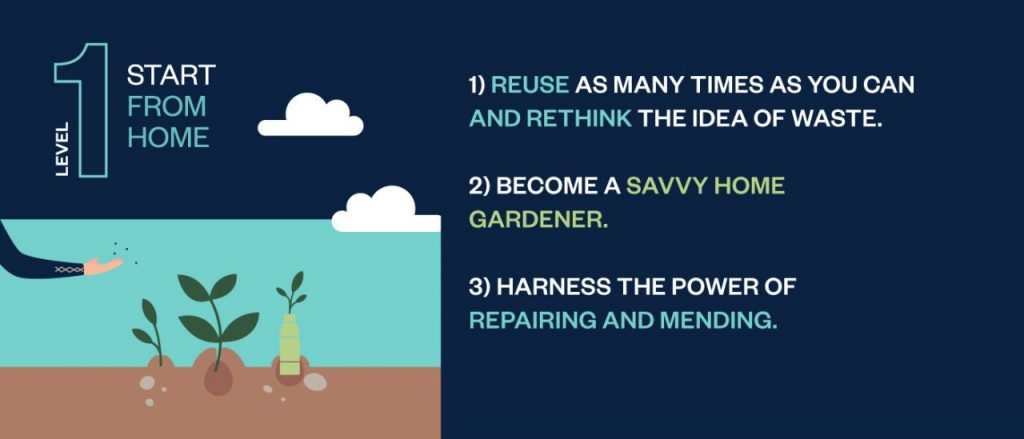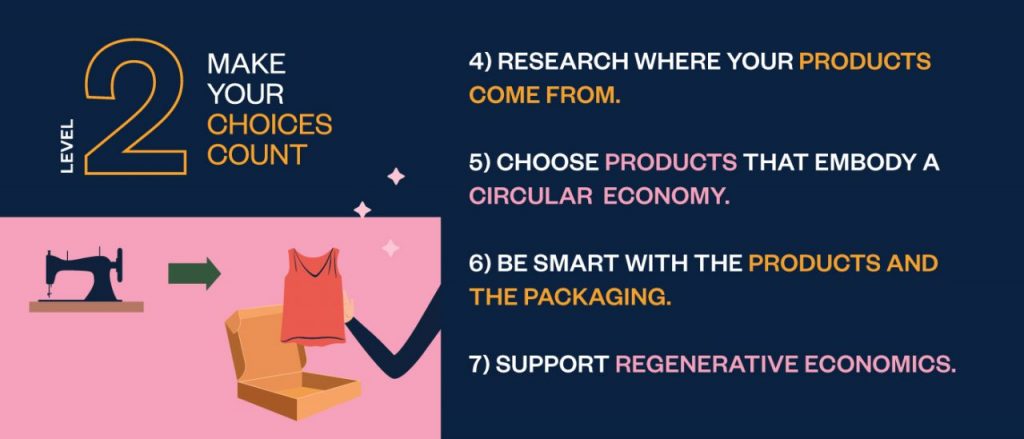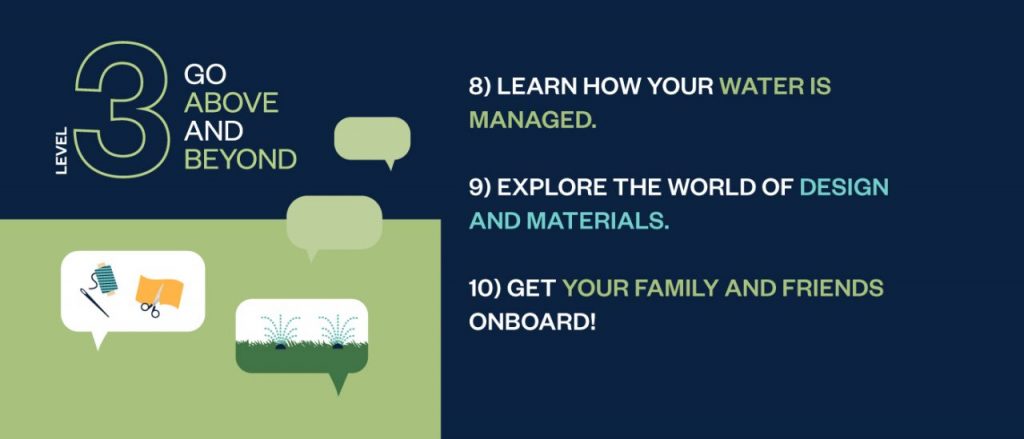We come from a linear economy based on the ‘take-make-waste’ model: we take resources from the ground, make products from them and discard them once we are done using them. This model is not sustainable for the environment, people or companies. It’s time to transition to a circular economy.
Very recently, the COVID-19 crisis has exposed our system’s vulnerabilities, including the fragility and lack of adaptability of global supply chains. A circular economy will provide opportunities for both future resilience and competitiveness.
What is a circular economy?
Circular economies are based on the principles of designing out waste and pollution (so that we don’t create them in the first place), keeping products and materials in use, and regenerating natural systems (such as the soil and other ecosystems).
Here are 10 ways to be more circular every day:


4) Research where your products come from.
In a true circular economy, we wouldn’t need to produce new products but rather continue reusing what already exists.
Research where your products come from. If this process is new to you, you can start with clothes, electronics and household items like furniture. Get familiarized with their origin, manufacturing process and materials used. For instance, 97% of the materials used in the fashion industry are brand new and 73% of clothing ends in landfill or incinerated.
5) Choose products that embody a circular economy
When you need to replace any of your products, try to support organizations that rely on reuse models and embody a circular economy.
The design process affects 80% of the impact on the environment. Choosing companies that design products which minimize waste and pollution is a great way to contribute towards a circular economy.
6) Be smart with the products and the packaging.
Many of the things we buy come in packaging that can’t be reused. 40% of the plastic used in Europe is used for packaging.
When you can, try to go for multi-use instead of single-use. Reusable and durable products (even better if they are made with recycled materials!) are a great way to avoid creating waste. Rigorously tested biodegradable options are also an alternative.
7) Support regenerative economics.
One of the pillars of the circular economy is that it regenerates natural systems, a process that has always occurred in nature. Following this idea, regenerative economics improves the relationship between human economy and nature. It also creates wealth beyond money, such as natural capital by helping nature, ecosystems and biodiversity thrive.
You can contribute to regenerative economics by supporting businesses across many industries that help nature and communities thrive with their everyday operations.

8) Learn how your water is managed.
Water is essential for us and many sectors of the economy. However, water resources are not regularly distributed and are under great pressure because of human activity and economic development. Two thirds of the world’s population currently live in areas that experience water scarcity for at least one month a year.
Managing and reusing wastewater efficiently is essential. This process provides significant environmental benefits, improves agricultural production and reduces energy consumption and distribution of water. Learn more about how water is managed where you live and support improvements!
9) Explore the world of design and materials.
At the design stage of products, important decisions are made that impact their manufacturing process, their use and what happens when they are no longer needed.
If this is a topic that interests you but don’t know where to start, check out the circular design guide created by The Ellen MacArthur Foundation and IDEO. Here you can learn to understand the design process and users, and learn how to define your challenge, ideate, design, prototype and release your idea.
10) Get your family and friends onboard!
Share with them some of the things you have learned about circular economies and help them put some of the ideas on this guide into practice!
Make sure to follow us on Facebook, Instagram and Twitter for more ideas!
Looking to browse some more on circular economy?
You can find great resources to learn more about several topics within circular economy from organizations like The Ellen MacArthur Foundation and Circle Economy.
Your local waste management authority likely has some tips on how to improve on your recycling or composting.






